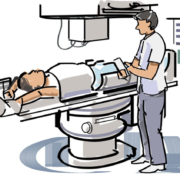BPH Treatment and PSA
One of the reasons I love what I do is that I learn something new just about every day. In this case, it may help some men sooner rather than later if they have benign prostatic hyperplasia (BPH).
The urethra runs right through the prostate gland. As a man ages, the prostate gland has a tendency to enlarge, and when it does, it can interfere with urine flow. The result is the inability to empty the bladder completely, which can cause frequent urination; a man may have to get up multiple times through the night to urinate.
The typical treatment is to use a medication called a 5-alpha reductase inhibitor that includes finasteride and dutasteride. By reducing the production of a specific form of active testosterone, the prostate can stop enlarging and urination improves. The problem with using the medication is that it can reduce the protein specific antigen level, a marker that can indicate a man has prostate cancer. Could it impact the diagnosis, treatment, and even death from prostate cancer? We’ll look at a recently published study that examined those very questions on Thursday.
The monthly Insider conference call is tomorrow night. You can take part by becoming an Insider today at drchet.com; if you’re a Member, you can upgrade to Insider and the charge will be prorated.
What are you prepared to do today?
Dr. Chet
Reference: JAMA Intern Med. 2019;179(6):812-819. doi:10.1001/jamainternmed.2019.0280.









